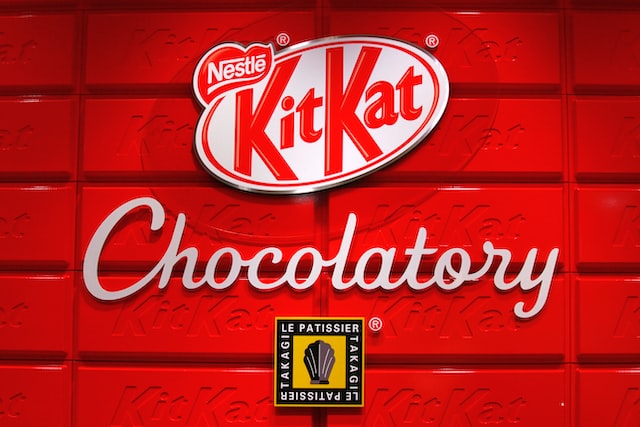Before we dive deep into the PESTEL analysis, let’s get the business overview of Nestle. Nestlé S.A. is a Swiss multinational food and beverage company considered one of the largest in the world. Here is a brief overview of their business:
Foundation and History: Nestlé was founded in 1866 by Henri Nestlé in Vevey, Switzerland. Initially, the company specialized in selling infant cereal, but over the years, it expanded its product portfolio through a series of acquisitions and brand developments.
Product Portfolio: Nestlé has a diverse product range covering various categories such as dairy products, beverages, processed food, confectionery, infant nutrition, health science, and pet care. The company owns several well-known brands, including Nescafé, Kit Kat, Smarties, Nespresso, Stouffer’s, Gerber, Purina, and Maggi, among others.
Operations: Nestlé operates in nearly every country globally, with over 400 factories across different continents. This vast presence enables the company to cater to various consumer tastes and preferences.
Sustainability and Corporate Social Responsibility: Nestlé has committed to several sustainability initiatives, such as aiming for zero environmental impact in their operations by 2030 and using more recyclable packaging. The company also invests in various corporate social responsibility initiatives in nutrition, water, rural development, and responsible sourcing.
Future Direction: The company continuously invests in research and development to create new products and improve existing ones. As consumer preferences shift towards healthier and more sustainable products, Nestlé is focusing on improving the nutritional value of its products and reducing its environmental footprint.
Financial Performance 2023: Total reported sales were CHF 93.0 billion, a decrease of 1.5% (FY-2022: CHF 94.4 billion).
Good food, Good growth: Nestle’s way of doing business!
Here is the PESTEL analysis of Nestle
A PESTEL analysis is a strategic management framework used to examine the external macro-environmental factors that can impact an organization or industry. The acronym PESTEL stands for:
- Political factors: Relate to government policies, regulations, political stability, and other political forces that may impact the business environment.
- Economic factors: Deal with economic conditions and trends affecting an organization’s operations, profitability, and growth.
- Sociocultural factors: Relate to social and cultural aspects that may influence consumer preferences, lifestyles, demographics, and market trends.
- Technological factors: Deal with developing and applying new technologies, innovations, and trends that can impact an industry or organization.
- Environmental factors: Relate to ecological and environmental concerns that may affect an organization’s operations and decision-making.
- Legal factors: Refer to the laws and regulations that govern businesses and industries.
In this article, we will do a PESTEL Analysis of Nestle.
PESTEL Analysis Framework: Explained with Examples
Political
- Regulatory Compliance: Given its global presence, Nestlé must comply with various food safety, labeling, and product regulations across different countries. Any changes in these regulations can significantly impact Nestlé’s operations, costs, and strategies.
- Political Stability: Political stability in a country or region can significantly impact Nestlé’s operations. Political instability or conflicts can disrupt supply chains, production, or market access. Conversely, political stability can offer a conducive environment for business operations and growth.
- Trade Policies: Tariffs, import/export restrictions, and other trade policies can impact Nestlé’s business. For instance, changes in international trade agreements could impact the costs of raw materials or finished products, affecting the company’s profit margins.
- Tax Policies: Changes in corporate tax policies in the countries where Nestlé operates can impact its financial performance. For example, increased corporate tax rates could reduce the company’s net profits.
- Government Initiatives: Government initiatives can either positively or negatively affect Nestlé. For instance, government programs promoting healthy eating could impact the demand for some of Nestlé’s products. Conversely, subsidies or incentives in agriculture could lower costs for some raw materials.
- Geopolitical Issues: These could also have an impact on Nestlé’s operations. This includes Brexit, international relations, and other geopolitical shifts that could affect the company’s access to certain markets or its supply chain.
Economic
- Global and Regional Economies: The overall health of the global economy and specific regional economies can significantly impact Nestlé. Economic downturns or recessions may reduce consumer spending, affecting demand for Nestlé’s products. Conversely, economic growth can increase demand.
- Exchange Rates: As a multinational company operating in numerous countries, Nestlé deals in multiple currencies. Fluctuations in exchange rates can affect the company’s revenues, costs, and profits. For example, a strong Swiss Franc (Nestlé’s reporting currency) can reduce the value of sales and profits made in other currencies.
- Inflation Rates: Changes in inflation rates can affect both the cost of raw materials and consumers’ purchasing power. High inflation can increase costs and reduce demand if consumers cannot afford products.
- Interest Rates: Interest rates can impact Nestlé’s cost of capital. For instance, high-interest rates can increase the cost of borrowing for capital investments, while low-interest rates can make borrowing cheaper.
- Unemployment Rates: High unemployment rates can reduce consumer spending power, which may affect the demand for Nestlé’s products. Conversely, low unemployment rates might increase consumer spending, potentially boosting sales.
- Consumer Confidence: This measures how optimistic consumers are about their financial future. When consumer confidence is high, consumers are more likely to spend on non-essential goods, potentially benefiting companies like Nestlé.
Sociocultural
- Changing Consumer Preferences: Consumer tastes and preferences are constantly changing. Trends such as health consciousness, organic products, and plant-based diets could impact the demand for various Nestlé products. Nestlé must anticipate and adapt to these changes to stay relevant.
- Demographics and Lifestyle: Age distribution, income levels, and lifestyle changes can influence the demand for Nestlé’s products. For example, an aging population might boost the demand for health and wellness products, while rising income levels could increase the demand for premium products.
- Cultural Sensitivities: As a global company, Nestlé operates in diverse cultures. Understanding cultural sensitivities, local customs, and tastes is crucial for product development, marketing, and overall business strategy.
- Social Awareness and Ethics: Consumers are increasingly concerned about ethical issues such as sustainability, fair trade, and animal welfare. Nestlé’s practices regarding these issues can affect its brand image and consumer loyalty.
- Consumer Health Consciousness: There’s a growing trend of health consciousness among consumers globally. People are becoming more aware of nutritional value and are often willing to pay premium prices for healthier alternatives. This trend influences the demand for Nestlé’s healthier and ‘better-for-you’ product ranges.
- Attitudes towards Foreign Companies: In some markets, consumers may prefer local brands or negatively perceive foreign companies. This can affect Nestlé’s market share and performance in these regions.
Technological
- Production Technology: Technological advances can improve efficiency, cost savings, and quality control in Nestlé’s manufacturing processes. This includes things like automation, AI, and other advanced manufacturing technologies.
- Supply Chain and Logistics Technology: Technology can significantly enhance supply chain and logistics management, leading to cost savings, better inventory management, and improved efficiency. Technologies such as IoT, blockchain, AI, and machine learning can significantly improve these areas.
- Digital Marketing: The rise of digital marketing and social media has transformed how companies interact with customers. Nestlé can leverage these platforms for advertising, customer engagement, brand awareness, and market research.
- E-commerce: The growth of online retail has created new sales channels for Nestlé’s products. This could affect Nestlé’s sales strategies and distribution channels.
- Research and Development: Technological advancements can support Nestlé’s research and development activities, leading to the development of new products or improvements to existing ones. This could be crucial for staying competitive and meeting changing consumer needs.
- Data Analysis and Forecasting: Technology has improved companies’ ability to collect, analyze, and use data. This can help Nestlé better understand market trends, consumer behavior, and operational performance, aiding in strategic decision-making.
- Sustainability Technology: Technological innovations can also contribute to sustainability efforts, an area of increasing importance for businesses. This could include technologies for reducing energy usage, waste, and emissions in production processes or creating more sustainable packaging.
Environmental
- Climate Change: Climate changes can affect the availability and cost of key raw materials for Nestlé, such as cocoa, coffee beans, and milk. This could impact the company’s supply chain and product costs.
- Sustainability: There’s a growing expectation from consumers, governments, and investors for businesses to operate sustainably. Nestlé’s strategies around waste management, energy use, water conservation, and sustainable sourcing can impact its brand reputation and compliance with regulations.
- Packaging: Nestlé, like other food and beverage companies, uses a lot of packaging for its products. The environmental impact of packaging is a significant concern, leading to regulations and consumer demand for more sustainable packaging solutions.
- Regulations: Environmental regulations can affect various aspects of Nestlé’s operations. This could include regulations around emissions, waste disposal, water use, and the use of genetically modified organisms (GMOs) in products.
- Biodiversity: Companies are increasingly expected to consider their impact on biodiversity. For Nestlé, this could relate to the sourcing of raw materials and the impact of its operations on local ecosystems.
- Natural Disasters: Natural disasters, which may be exacerbated by climate change, can disrupt Nestlé’s operations, including production facilities and supply chains.
Legal
- Food Safety Regulations: As a food and beverage company, Nestlé must comply with stringent food safety regulations in all its countries. These regulations cover product quality, ingredients, labeling, and packaging. Non-compliance can lead to fines, recalls, or damage to the company’s reputation.
- Employment Laws: Employment laws vary significantly across countries. These laws cover wages, working conditions, diversity, and employee rights. Nestlé must adhere to these laws to avoid legal issues and maintain a positive corporate image.
- Environmental Laws: Nestlé must comply with environmental laws related to waste disposal, emissions, energy use, etc. These laws can influence Nestlé’s production processes, costs, and sustainability initiatives.
- Trade Regulations: International trade regulations affect how Nestlé imports and exports goods across borders. Changes in tariffs, customs regulations, and trade agreements can impact Nestlé’s supply chain and profitability.
- Advertising Laws: There are laws and regulations governing how products can be marketed and advertised, which Nestlé must follow. Non-compliance could lead to legal consequences and harm the company’s reputation.
- Intellectual Property Laws: Nestlé, like any company, must manage its intellectual property rights, such as trademarks, patents, and copyrights. It must also ensure it does not infringe on the intellectual property rights of others.











